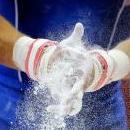Search the Community
Showing results for tags 'Nutrition'.
-
How compatible is the Thrive nutrition program with travel? I am on the road often and want to know if Thrive is compatiable with this (thankfully temporary lifestyle). Cheers
-
I am currently trying to put on lean weight. i have tanata bathroom scales, i know they are not accurate but are supposed to be a good tool for monitering gains and losses in body fat. so my weight 8 weeks ago :178 at 12% body fat and my weight now :182 at 15% body fat my math :was 178/100 * 12% =21.36 pounds of fat :now 182/100 * 15% =27.3 pounds of body fat WTF? please help the thick guy over here its destroying my motivation
-
Hi all - wondering if there are specific types of food or dietary supplements that one should take to increase/accelerate gains in mobility? Personally, I am doing the stretch series and follow Tim Ferriss's Slow Carb Diet. That diet has historically been great for me for muscular growth and weight loss, and the stretch series has been going well so far. So I'm wondering, just as the over-generalized belief is that more protein equals more muscle, is there an equivalent on the mobility/flexibility side? Sincerely, impatient guy that is "carved out of stone"
-
Any thoughts on (or, better yet, experience of) insect protein? Here is a product I came across and I'm curious what the worldly-wise on the forum think of it or things of this sort: http://www.amazon.com/Cricket-Flour-made-100-22/dp/B00OMCTODQ/ref=cm_cr_arp_d_product_top?ie=UTF8
-
I've noticed that Olympic-level gymnasts recently tend to have a lot more muscle than the average Olympic-level gymnasts of 10+ years ago. My guess (and it is only a guess, I haven't researched this yet) is that there is a larger emphasis on nutrition as well as the addition of more weight training. So, I was wondering, what kind of nutrition plans do elite gymnasts typically use? I'm sure that it all depends on the individual or team that they're on, but what are the general trends? Do gymnasts these days use bulk and cut cycles similar to what bodybuilders do in order to gain muscle and lose fat, or is the focus mainly on nutrition that gives you the most energy and boosts performance (with muscle gain and fat loss as a side effect)?
-
Starting GB I have experienced some cramping while doing exercises that seems to be related to a lack of conditioning -- in my feet while curling my toes during middle split stretches, for instance. As some of the movements are very novel, it seems the muscles respond with cramping and the cramping has diminished as my conditioning has improved. However, I have also had cramping before and after discovering GB which seems more generic, while sleeping or resting for instance. I have read magnesium is a common deficiency that leads to cramping but tried a magnesium citrate/oxide blend of 250mg/day for 8 weeks but still had some cramping while at rest. I have also heard that potassium deficiency is NOT generally a cause of cramping though it is commonly believed to be. Not sure if that is true or not, so wondering if anyone has experience with supplements or other strategies that have successfully reduced or eliminated cramping while at rest?
-
Hey guys. I'm gonna have to do changes in my schedule because of work obligations, and I can't train in the morning as I used to so it has to be in the evening. If I eat right after I come from work, at around 17:00 I'll do my training at 19:00. So my post workout meal, which will be at around 20:30, will also be my last meal for the day. My question is: Will this have some negative effect, to only have one big meal after hard training session (I'm following a gymnastics program)? I want to gain some more muscles and bring my weight at around 75kg (I'm 71 right now with 176cm) and was wandering if I still eat the right amount of calories and proteins, but with most of that before the training session for the day and with only one meal after, will I be able to reach my goal?
- 1 reply
-
- evening training
- nutrition
-
(and 2 more)
Tagged with:
-
G'day everyone, My question is really in two parts, so apologies for that to begin with. The first part is directly related to Carbohydrate consumption for F1 and H1 training program run over a 4 day split (with H1 supplementing the lower body days). Workouts normally last 40-60 minutes depending on the micro cycle. 1. So, does the suggestions/examples given by Joshua in 'Perfect Workout Nutrition 2013' apply directly to this type of training? Are the recommendations sufficient or too much? how much Carbohydrate would generally be required for a standard F1 2. I also wanted to post up the nutrition and eating plan my Fiancé and I are working on to support this question, and see what some of the big brains around here thought? Following Joshua Naterman’s advice (link), alongside reading Dr Bernardots Advanced Sports Nutrition book, I believe the following would be required for me (180cm, 70kg) and my Fiancé (154cm, 57kg) Callum (me) Daily Totals (includes the during and post workout numbers below) CARBS: 350 – 490g = 1400 – 1960 CAL PROTEIN: 100 – 110g = 400 – 440 CAL FAT = 998 – 398 CAL During Workout (F1/H1) CARBS: 30g POST Workout: CARBS: 60-90g PROTEIN: 30g Candice (fiancée) Daily Totals (includes the during and post workout numbers below) CARBS: 275 – 375g = 1100 – 1500 CAL PROTEIN: 80 – 90g = 320 – 360 CAL FAT = 722 – 282 CAL During Workout (F1/H1) CARBS: 30g POST Workout: CARBS: 60-70g PROTEIN: 30g Thanks everyone and keep up the great work in this awesome community. Callum
- 13 replies
-
- Foundation
- Handstand 1
-
(and 3 more)
Tagged with:
-
Hi guys! So back in April 2013, I came to this message board for help. I was really stuck with my body composition. I was a stocky 203lb / 92kg, very active, followed a meticulous eating plan... But, I was still at 30% bodyfat and frustrated that my weight didn't move anywhere. I want to thank you guys for helping me out. I got so much amazing advice - learning that I was seriously overestimating the calories I needed, and that despite eating lots of raw veggies my vitamin/mineral intake wasn't great. I particularly want to thank the Slizzard - Josh Naterman - for suggesting I do some study in nutrition. That is exactly what I did. I found a flexbook called Fundamentals in Human Nutrition, released by Kansas State University and went through it very eagerly. After ten years of jumping from one fad diet to another, it was sooo good to finally get a good, solid grounding! The one thing I took away from the study was simple, but very powerful: get your RDAs, and nothing more. I put together a simple meal-plan that gave me the macros, vitamins and minerals I needed in as few calories as possible. I tracked everything I was doing using a great, free online food tracker called Cronometer. I started in May, and immediately began losing two pounds per week! Yesterday, at 167lb / 75kg I decided to stop eating for fat loss and start eating for muscle growth. Goodbye fasted training, hello anabolic window! The visual changes are also very cool to see, this is back when I asked for help compared to today: Still learning to smile for photos... In a store buying smaller clothes, shocked to see strange corrugations on my stomach. Now, I am following Naterman's Perfect Workout Nutrition 2013 plan. This involves eating two-thirds of my calories in a four-hour anabolic window, and the rest of the day eating raw, mineral-dense vegetables, a bit of fruit, and some lean proteins (tempeh). It has been a life-changing eight months, and I'm excited to explore what the next eight months will bring! (I'm going for beast-like strength gains.) Thanks again guys!
- 40 replies
-
- 36
-

-
- losing weight
- nutrition
-
(and 7 more)
Tagged with:
-
Spring is knocking on the door and since dandelion season is in full swing, I decided to make a list of a few "weeds" that are highly nutritious. This is mostly comprised of plants that I can find in my vicinity, so it's made of plants that grow in Central and North Europe. Before we start off, if you do decide to pick these plants, be mindful of the surroundings they're growing in. You'll not want to pick off a field that has lots of four-legged visitors, be sure that traffic and roads are not too near and avoid chemically treated fields. Now, let's start with one of my favourites: Disclaimer: I do not claim to be an expert on plants, I'm merely interested in edible plants that common folk has classified as weeds. Dandelion (Taraxacum): This plant is edible from tip to toe. It is high in vitamins A and C as well as Calcium (Ca) and Iron (Fe). Leaves can be harvested throughout the year, although young leaves harvested in March and April will have a less bitter taste and are more suitable for salads. The shape of the leaves can vary from very pointy to almost smooth. The roots can be ground and dried to make tea or additionally roasted to make a caffeine-free coffee substitute. The root can also be used just like a root vegetable would. The flower buds are perfect for salads or to make special wine. Stinging Nettle (Urtica dioica): The stinging nettle is no ordinary plant. It is quickly becoming recognised as one of the super foods of the world. And they grow just about anywhere. The stinging nettle has one of the best protein count of any plant, ranging up to 25% of its dry weight in peak season. It's also rich in Calcium (Ca), Potassium (K), Magnesium (Mg) and also in vitamins A and B6. The plant has a downside, though. If you eat too much of it, it works as a powerful diuretic. When harvesting, be sure the wear gloves and long sleeves. It is best to harvest young plants before flowering, because the plant does not develop as many stingers and will have less of a hairy feel. It also tastes better. Stinging nettle shoots are especially yummy and can be eaten raw. A popular dish is the stinging nettle potatoe soup, just cook and blend and you're done. Easy. You can also substitue it for spinach. You can also dry the leaves, at which point the stingers will drop from them and use the leaves in herbal teas. Common Purslane (Portulaca oleracea): This plant is awesome. It has more omega-3 fatty acids than any other leafy vegetable plant as well as potent antioxidants. Besides that, it is high in vitamins E and C, as well as Magnesium (Mg), Manganese (Mn), Iron (Fe) and Potassium (K). It grows most in the summer, and can be recognised by its fat leaves and red stems both of which are edible, BUT should not be confused with pigweed as they can be similar in appearance. You can distinguish them by height and leaf thickness. Purslane is lower and has fatter leaves than pigweed. You can use it in salads or just steam it. Broadleaf Plantain (Plantago major): Besides being very useful as a poultice (just smash it up and put it on wound, it helps with regeneration), the leaves are also edible. It is rich in Calcium (Ca) as well as vitamins K, A and C. The leaves themselves get tough very quickly, so be sure to harvest only the youngest leaves. It can be harvested throughout the year. Substitute it for spinach or just throw it in a salad. Lamb's quarters (Chenopodium album): Also known as goosefoot, due to the shape of the leaves, it is easily identified due to its milky colour. It used to be common in people's diets, but has been displaced by spinach. Similarly to spinach, it is high in oxalic acids and should be eaten in moderation. It is high in Calcium (Ca), Manganese (Mn), Phosphorous (PO4) and Potassium (K) as well as vitamins C, A, B2 and B6. You can harvest the leaves throughout the growing season, and can cook or steam them in place of spinach. Sheep's Sorel (Rumex acetosella): Also known as sour weed, this member of the buckwheat family, like the name suggests, is sour in taste. It is rich in vitamins C and A as well as Magnesium (Mg), Iron (Fe) and Calcium (Ca). It can be harvested throughout its growing season (spring, summer, fall), with leaves going great in salads and the stems can be used as a refreshing snack on the spot. Just bite down and suck. If you have any weeds you know of that are highly edible, please feel free to add!
- 6 replies
-
- 3
-

-
- vegetables
- nutrition
-
(and 1 more)
Tagged with:
-
Hi guys! Do any of you apply the Perfect Workout nutrition while training in the evening? I am asking this because of the frequent feedings Joshua reccomends after training, but in my case that would be around 2 hours before bed at most. So not much time for pulsing the protein. Can the protocol still be applied and be succesfull with such timing?
- 7 replies
-
- Workout Nutrition 2013
- training
-
(and 1 more)
Tagged with:
-
My son is 12 yo and is a level 6 gymnast. He has only been doing the sport for about 18 months. He is training only 12 hours a week. But he is a very intense gymnast. Since December his appetite has decreased dramatically. I can not get him to eat much. I am worried. Any help would be nice. Thank you.
- 8 replies
-
- overtraining
- nutrition
-
(and 2 more)
Tagged with:
-
Hey, you guys I have question on A diet fad that I hear a lot. Everyone says follow you macros but I am not that fond of this because I believe some days the body might need more nutrients and some days it might need less. Macros are always constant I believe. I have have never followed this approach but I am willing to on others opinions on this diet. As of right now I follow almost a extreme Paleo diet right now. only meat, vegetables, some fruit and nuts(peanuts mostly).
-
Hi all, I decided to fix my diet to gain some mass. I´m doing F1 4 times a week and H1 2 times since February. And really see some improvment. I´m more defined, but I struggle to put on weight. I checked out alot of topics about nutrition and based my approach upon all this information: 1. Eat enough calories( ca. 2200 kcal) and protein( ca.120g )! 2. Eat whole foods and a crapton of vegetabels and fruits! 3. Getting breakfast! 4. Slow digisting meal before I go to bed! I don´t want to lose my self into details so this is just a basic approach. While changing my diet I also want to fix my sleeping habits and start doing some kind of cardio / HIIT ! Some Imformation about myself: I´m 18 years old. My weight is 64kg(141 lbs) and I´m 185cm tall. I was always underweight, but I had never problems with it( My doc said it was okay as long as I feel good). Never really active at doing sports, till I started some weight training 1,5 half year ago and F1/H1 since February. Never done some sort of cardio/HIIT.... And never eat breakfast or eat a lot of fruits and vegetabels... I´m getting pre / post workout nutrition inspired by this thread https://www.gymnasticbodies.com/forum/topic/9580-perfect-workout-nutrition-2013/ ( it´s really helps me. Thanks for this great post ) What do you think about my approach? Maybe someone has some tips about the cardio aspect aswell. (I will to have change a lot, but it´s really time to do it.) Looking forward to every answer and thanks for your help ! =) Yours sincerely, Phil ( English is not my native, but I hope its okay^^)
-
Hey guys i have been taking an egg protein powder and noticed it has 1.28 grams of sodium every 100 grams. What do you think about that? Do you think its dangerous? Its also 82% protein, 4% carbs, 0% fat. Btw i am trying to avoid whey protein for the moment because it has lactose Thanks in advance and sorry for my english..
-

My Perfect Nutrition 2013 Toughts,Paleo,Expirence (Must see,comment)
Delyan Dido Dimitrov posted a topic in Nutrition
Hi.I`ve been quite in in nutrition for 2,3 years.Litteraly tried everything possible - all kinds of diets-paleo,counting calories,eating 5-6 times a day,tried low carb diet,high carb diet,fasting.Here are some of my toughts and expiriences i gadered to make my best nutrition so far.First of all i need to say my bodytype is ednomorph-i gain muscle and fat fast,losing fat very hard,my bones structure is big bones,and i squat heavy,i have big legs (i can now ATG squat more than double my bodyweight).First of all here are the questions that i had a long time to find the answers: 1-Gymnastics training (acrobatic and strenght) -they bought requires a lot of energy how accuratley to know my calories? Answer:As knowing as gymnastic is a anaerobic sport you need to consume between 2000-2500 calories. 1.6-1.8g protein per kg,5-7g carbs per kg,rest is fat. 2-Can i eat junk food,sugar stuff and bad foods and still get the best results? Answer:Im currently on Paleo diet-eating lean meats,egg whites,oatmeal,fruits and veggies,brown rice,sweet potato,beans,nuts - Foods that were exited long before the "lazy generation"(sweet stuff,enriched foods,chocolates).Yes you can eat bad foods and get results its just not worth it to give up 500calories for a choclate - its much,it gives you nothing,and imagine before people didnt have these bad foods thats why the majorty were far stronger than people today.You can eat wheat bread,(personally i prefer not to,its up to you) 3-How much carbs i need for recovery? Answer-Typicly after workout your brain your CNS is tired,you crave some carbs (i know that feeling).You are telling yourself all kinds of stupid exuces (will my body recover from my workout).The truth is you need first to wait 30-60 minutes after taking any food(supplements or natural) after your workout to not stop Groth hormone.Carbs are important - take 30 g to maximum 80g post workout-its enough.Overeating wont help your recovery.Always try to combine in a meal - protein,carbs,(if carbs alone make it a snack only 15g-20g) and some friendly fat (omega 3,tbps peanut butter). 4-Sould i drink a lot of water ? Yes,drink alot of water make it like 3 liters or a gallon a day.Helps digesting,burns fat,gives you energy 5.Weight Height rations-If im big and very lean will i feel "heavy" in bodyweight exercices ? Answer:I tried it,you have to find your ratio - The heavyes gymnast at top level is Brandon Wynn.170sm tall,~74kg personal weight- thats the heavyest i know,and he is beast,but the majorty of the gymnast are -100 or - 102 from their height.For exemple 170sm tall -68 kg,70 kg LEAN muscles. 6.Losing fat is it equal for everyone ? Answer in my opinion not.Some of my friends can lose fat,really easy,for me that is a hard job to do.The best way i found is called intermittent fasting.Its not a diet its a diffrent type of eating trough the day-Typicly 16 hours (with your sleep) no eating,and 8 hours eating window when you have to eat all your calories for the day.Always go to bed hungry.My expirince show this-i dont lose any strenght,only fat,i feel LIGHT during my workout,i have energy and im focused on my workout.You wont lose any muscles.You have to not eat for more than 48 hours,that your body starts to eat muscle and bones,other time its eating fat. 7.Try to eat a salad or a green veggies everyday-helps digesting track,its good for your helth. 8.Supplements-I tried a lot of supplements i tell you wich ones works good for me. Glutamine- i feel it quickly going into my body,its not breaking your fast,its makes me start the day good. Protein powder-Helps recovery have a lot of protein 23g in just 30g serving Kre Alkalyn instead of Creatine - i feel it gives me energy,it retains less water its cheap if you take 2 pills a day. Omega 3-a perfect source of good fats Calcium-helps my fight muscle sorness Gliucosamine-works perfect to fight joints paint,and its the best for connective tissue. Muscle pharm re con (carb/bcaa powder) - i felt recovering better when starting to used this. Bcaa-feeling great,no calories in it,helps recovery Green tea extract-helps boost metabolism,works with fighting fat and its natural ** Fat burners- fat burners works like magic-it gives a lot of energy,you dont crave food so much.But i stoped used them,because they have stimulats and im really sensitive to caffeine-problem is when stoping them i feel my results going down. My nutrition plan: 16 hours not eating,8 hours eating window.Some times 24 hours not eating ( when overdo calories the day before).Making your eating window small will make your fat loss results better. Before bed i take 10g of glutamine,1 pill glicosamine and 1 pill calcium When waking up-10g of glutamine,1 pill gliucosamine Depends on hunger cravings i drink bcaa if needed (0 calories wont break the fast effect) When 16 hours are finished ( i workout fasted always) i take (carbo/bcaa supplement)+protein 30-60 minutes after my worout is done.1-2 hours later a meal (protein+carbs+fats).2-3 hours later the same sometimes i workout twice a day so i take bcaa postworkout.After the late night training-bcaa/protein/veggies and not more than 30-80max carbs also some fat.Depends on time and workout i take one more meal - only protein.All that in the calorie count ofcource. Here are a meal plan - only 1700kcal - 131g of protein,193 g of carbs,39 g of fat -Muscle pharm Recon -Protein powder -Pasta 100g (weight before cooking,cooked like 250g) -Salmon or fish 100g -Egg whites 200g -Oat meal - 100g -Veggies//salad -Beans 100g (boiled,no salt added) -low fat curd/cottage chese -table spoon peanut butter Thats more than enough and you have 300kcal to 800kcal bonus to add something you love. That works for me,i feel great.I wanted to share my toughts,and the most important thing - Comment what are your problems,or questions when struggling with your diet ! Wish you luck,hope this helps Peace -
I had posted about my experiences with the Paleo diet a few weeks back and how it would help me win the weight loss competition at my work. I originally eliminated all carb foods from my diet, but I then changed my approach based on Josh Naterman's recent posts by incorporating grains and potatoes into my nutrition. My focus shifted to just avoiding soda drinks and sweets. After 4-5 weeks, I am down to 142 pounds from my original 153, which is essentially my goal weight achieved far sooner then I imagined. The big realisation of this experience is that the removal of sugar products makes a far greater difference than any other type of nutritional gimmick. If you stay away from coke, ice cream, and donuts, you have essentially won the battle (particularly if you exercise). No need to overanalyse and rush into extreme solutions like a strict paleo diet. (And thanks again to Josh!)
-
We started a weight loss competition at my work two weeks ago, where the final weigh-in will be held at the end of June. There are two teams of ten members each, and the team that loses the highest percentage of weight (and a separate contest of who loses most body fat percentage) wins. One of the team leaders joked that I had no reason to join, because I was skinny enough(153 pounds, 5'5, slender frame). Well, there is a thing called being skinny-fat, and my body fat percentage was 26. I had always wanted to try the paleo diet and permanently incorporate it into my lifestyle after hearing about it so much on these forums. I cut out all sugar products (bye bye cola, double-double coffee and jujubes) and all flour/wheat products. I've spent every day learning new soup recipes (how else can you ingest a variety of vegetables on a daily basis?) and the proper way of cooking meat. No more take outs, cantine food or frozen food. The first weekly weigh-in, the opposing team leader couldn't believe I lost a full four pounds. I lost the same absolute weight of members who weigh 250, so I was the clear winner that week percentage wise (even won a prize). My initial goal is to reach a body fat percentage of 17. I don't want to give up the paleo thing at the end of the contest but make it part of my lifestyle permanently and become fat-adapted. These four pounds already have made a difference, because the F1 and H1 exercises are easier to execute then before. I'll post updates in the following weeks.
-
So, I looked around the site for a bit and found no real info on antinutrients. I would like to share my knowledge of antinutrients and ways to destroy them. Now, antinutrients are compounds found in all foods, with higher concentrations in vegetables, lower concentrations in fruits. These compounds either bind certain nutrients (calcium, iron, zinc, etc.) or inhibit the body's ability to properly digest food, losing some nutrition. interestingly, dietary fiber is also an antinutrient. Anyway, ways of destroying antinutrients includes germinating, cooking, fermenting, and malting foods. Some foods should be eaten raw for best nutritional quality. Most fruits and cruciferous vegetables fall into this category. Members of the spinach family, dark leafy greens, or plants high in oxalates should be cooked. Foods high in carotenoids such as tomatoes and carrots should also be cooked, as this releases more of the antioxidants and vitamins. try skinless sweet potato cooked together with mashed carrots. All nuts should have their hulls and skins removed. blanched nuts are great, but some nuts could be "activated" (marketing term meaning sprouted) to remove antinutrients. Almonds (my favorite nut, and an excellent source of vitamin E), can be processed in the following way. Put a good amount of organic, raw almonds in a bowl, rinse them until the water is clear, and then fill them with fresh water, a little bit of salt, and a little bit of some kind of acid. Leave them in the water for a few days, until you notice some sprouting. Drain the almonds, dry them,and then pop them in an oven or preferably a dehydrator. dehydrate them until crunchy, and you now have a healthy snack with most if not all antinutrients removed, but still retaining maximum nutritional value. For now, this is as much as I have readily available. As I learn more through my own research and my nutrition classes, I will likely update this topic. Other people should feel freeto share their knowledge of removing antinutrients,so we can have a comprehensive guide to the absolutely best methods of food preparation. I hope you all like this topic and find the information useful.
-

Told To Lose Weight, Gain Muscle Mass, And Compete At Same Time...ideas?
Karl Kallio posted a topic in Nutrition
For those who remember, I`m a synchronized swimming coach working with somewhat competitive athletes from 13-26 years old. The gymnastic bodies way of thinking about stength training has really helped us over the last year, but with sucess comes new chalenges. Right now I'm in a bit of a quandary and I was wondering if anyone might have some insights. Some of the girls have been called up to compete in some international meets and on Friday they completed the preliminary anthrompometric evaluation ( % body fat, muscle mass, functional tests etc). They all came out great on the functional tests, but one athlete recieved a negative evaluation in the area of body composition. She has been told she should lose 3 kg of fat and gain 4 kg of muscle, preferrably by March. I feel uncomfortable putting 3 simultaneous, semi-conflicting goals before an athlete (lose weight/compete/gain muscle mass) but since the decision was not mine I can only help her (and her parents) form a plan and do the best possible. If nothing better occurs to me I plan to advise her to try breaking her meals into many small portions centered around her training schedule, and to concentrate on consuming high quality food in the proportions she is accustomed to (no calorie deficit, no excess). For example, swapping the gatorade for fruit and water, the sandwitch for sauteed veg/protein + rice. Here are the details Weight: 55.6 kg Height: 170,2 cm Age: 15 % Body Fat: 21.75 (Whitters protocol, which seems to estimate higher than most methods) ...should be about 16 AKS: 0.88....should be about 0.98 Currently trains 3.5 hr/day Mon-Sat Will be training: 3.5 hr/day Tues-Thurs, + 16 hrs Fri/Sat/Sun Competitions in: Feb, Mar, May, Aug, Sept, Nov Limitations: Injury to 1 gluteus, cannot run, swims with fins when everybody else runs Tends to be a slow gainer of muscle mass Any ideas/strategies are most welcome. Thanks! -
Hello GB, happy Saturday! Earlier this year, Josh (Naterman) gave a recipe for making buckwheat pancakes. I adapted this recipe for making myself a bunch of buckwheat pancakes because it reduced the butter and they were more convenient. Every week and a half I make about 40 waffles. It takes about two hours (if not more), and result is a carb food that has quite a bit of fat in it because of the rice/almond milk and butter that I have to use for the baking. I've heard of people here eating it in other ways. Does anyone here have any experience with preparing and eating it in forms other than baking? Thanks in advance.
-
Perfect Workout Nutrition 2013 Please note that GymnasticBodies does not provide any endorsement (official or unofficial) to the contents; and that this is the presentation of my collected knowledge for the purpose of education. It does not represent medical advice and is not a prescription for nutrition. This is specifically for the time period from 30 minutes pre-workout to 4-24 hours post-workout, and is intended for healthy individuals. If you have diabetes, or any other medical condition, please consult with a Registered Dietician. Preferably one that is used to working with athletes. If you have questions, please ask them here: https://www.gymnasticbodies.com/forum/topic/9581-perfect-workout-nutrition-2013-questions-and-answers/ What you must know before you begin: This plan includes drinking a good bit of water. 1 Liter or Quart of Water + 400-600mg sodium (not potassium salt) mixed in. Too much water without sufficient salt is dangerous. 600mg of sodium is a level 1/4 tsp or ~1.25 mL. If you are not used to drinking a lot of water during your workouts, please refer to the second post for instructions on making the transition. Note: As great as this strategy is, it cannot make up for an entire day of crappy eating. What you eat outside of the workout timezone is, in many ways, even more important than what you do peri-workout. While this plan will always give you the best results for your given situation, your absolute best results will only occur when your every-day nutrition is also solid. That is your foundation. This is the fancy house that sits on the foundation, and if you put this on top of the dietary equivalent of quicksand then you should not expect to see the results you want. The precise plan: ~20-30 minutes pre-workout: 30g of whey protein + 10-16 oz (300-500ml) of water or milk. 10-20g Carbs (ideally vegetables or fruit from list, not juice/baked goods/fruit) Oil or butter to cook vegetables in (important fat) Acceptable Fruit List: Whole citrus fruits, small apples (not sweet), pitted fruits (peaches, nectarines, cherries, etc), most berries. Note 1: If you find other carb sources that work well for you, then obviously those are fine too. I simply find that these are the carb sources that give me the most consistently excellent results. Note 2: Some people simply can't make this work, due to scheduling issues. If you can't, you're going to need to experiment with whole food meals to find what works best for you. Daniel Burnham finds that eating a meal with fattier whole food protein (a hamburger or some sausage) and the amount of carbs (with plenty of veggies) he needs for time between the meal and the workout, about 1.5-2 hours before his workout, is his preferred strategy for the pre-workout meal, and he does not follow this particular 20-30 minute pre-workout bit. This does not work well for me, and I perform better with exactly what I have typed in this section. The rest of this post is pretty much identical for everyone, but this initial pre-workout feeding may not be best for all schedules. I personally plan my food so that I can always do this, because it works best for me. Do not dehydrate yourself but do not drink too much water. 5-10 minutes pre-workout mix: Carbs: This is assuming 2-3 minute rest periods and overall sets taking 30-60 seconds. 1) 30% of this right before the workout, drink rest during workout 2) For every 60g of carbs, drink 0.75 to 1 liter (or quart) of water Please refer to the Carb Table for the correct amount of carbohydrate consumption. Please note that these values are specifically for strength training. Read the Carb Table Here. Good Carbs for this: Well baked white potatoes Mashed potatoes Glucose powder Maltodextrin Anything that has a GI of 70-80 or higher. Protein: 10-20g of protein in the workout drink. There is to be no added fat in this drink. Keep in mind that this table is for strength training! That’s fairly intense work with 2-3 minute rests. If your rests are longer than that, you may want to reduce the carbohydrates a bit. For every additional minute of rest between sets, reduce the carbs by 5% for every minute of rest beyond 2 minutes. If you’re doing skill work, only consume half of the carbs Note 1: Make sure you get the protein into this pre-workout drink, as well as 400-600mg of sodium per Liter. (from table or sea salt, not a half potassium salt!) Note 2: It is totally OK to experiment with this. Your diet, and needs, will all vary somewhat from the norm, but the above table is a good starting point! It is also vital that you consume these carbs as a 6%-8% solution: Drink 750 mL(8%) to 1 Liter (6%) of water for every 60g carbs. During the workout: 80-100% of the remainder of the carbs that you did not have immediately pre-workout. Guidelines/Reminder for what needs to be in this drink: 400-600mg of sodium per Liter of water, or per quart. ~10g protein per Liter (or quart) of water Carbs mixed in or solid carbs such as mashed potatoes or white bread Water, salt, and protein must bemixed together. After the workout: PWO shake! Have this as close to instantly as possible. PWO shake components: 60-80g of carbs, regardless of bodyweight up to 200 lbs.Use either glucose powder, fast-acting maltodextrin, or mashed potatoes, especially after intense workouts. 2) 30g of whey or soy protein. Whey IS better protein than soy, and it’s the same price or cheaper. 3) Fats: No fats in the PWO shake or at all until more than 30 minutes post-workout. Coconut oil for this if you must have the fat. After this PWO shake, get back to regular eating! Eat every 30 to 60 minutes for at least 2 hours after this Drink a lot of water with your meal carbs and protein. You are always aiming to make a ~6%-12% solution, so that your body stays well hydrated and the stomach empties fairly rapidly. Fats don’t mix with water, so we don’t calculate them into this. 20-30g protein every 2-3 hours is perfect. The more vegetables, the better. You will pee a lot, most likely, and that is good. If you are not fully hydrated, you will not see anywhere near as much protein synthesis, and that means your results won’t be as good as they should be if you aren’t fully hydrated and peeing nearly clear. Please pay attention to the sodium guidelines, unless you have hyperaldosteronism. Electrolyte balance is a part of proper hydration, and failure to pay attention to this can cause serious problems or death.
- 1 reply
-
- 28
-

-
- pre-workout
- food
-
(and 8 more)
Tagged with:










